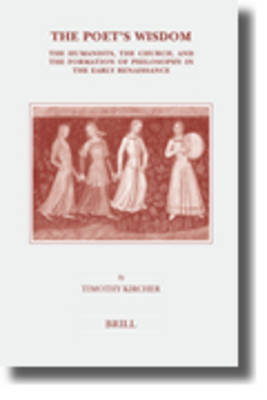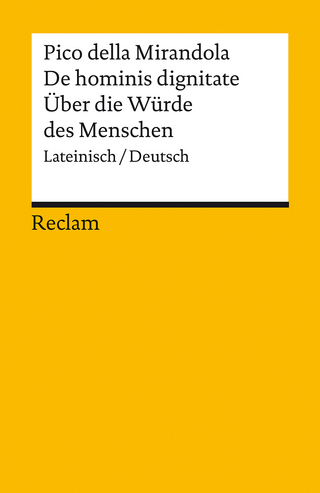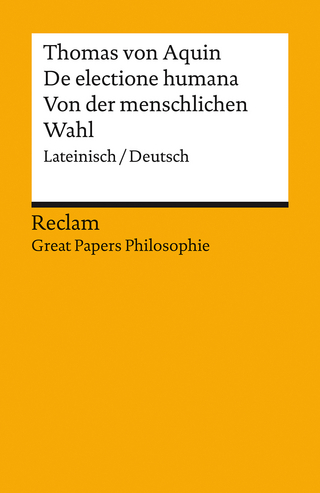
The Poet's Wisdom
The Humanists, the Church, and the Formation of Philosophy in the Early Renaissance
Seiten
2005
Brill (Verlag)
978-90-04-14637-2 (ISBN)
Brill (Verlag)
978-90-04-14637-2 (ISBN)
The book explores the philosophical thinking of Petrarch and Boccaccio in contrast to the writings of contemporary mendicants. Examining both Latin and vernacular works, it investigates how these humanists poetically express the temporal, subjective, and emotional quality of moral sensibility.
The book explores the philosophical thinking of Petrarch and Boccaccio in contrast to the writings of contemporary mendicants. Examining both Latin and vernacular works, it investigates how these humanists poetically express the temporal, subjective, and emotional quality of moral sensibility, in a way that shifts to the reader the weight of discerning the ethical message.
The book centers its analysis on a series of paradoxes pondered by these humanists: the self that changes yet persists over time; the awareness of self-deception; the individual's validation of authority; and the ethics of pleasure.
This study is valuable to those interested in Renaissance philosophy, literature, religion, and the history of ideas.
The book explores the philosophical thinking of Petrarch and Boccaccio in contrast to the writings of contemporary mendicants. Examining both Latin and vernacular works, it investigates how these humanists poetically express the temporal, subjective, and emotional quality of moral sensibility, in a way that shifts to the reader the weight of discerning the ethical message.
The book centers its analysis on a series of paradoxes pondered by these humanists: the self that changes yet persists over time; the awareness of self-deception; the individual's validation of authority; and the ethics of pleasure.
This study is valuable to those interested in Renaissance philosophy, literature, religion, and the history of ideas.
Timothy Kircher, Ph.D. (1989) in History, Yale University, is Professor of History at Guilford College, Greensboro, North Carolina.
Acknowledgements
List of Illustrations
I. Introduction
II. Tracking the Vagaries of Time: Anxiety and Freedom in Humanist Accounts of the Plague of 1348
III. Morality’s Hazy Mirror: The Humanist Modality of Moral Communication in the Decameron
IV. The Paradox of Experience and Moral Authority in Petrarch’s Writings
V. The Sea as an Image of Temporality
VI. The Ethics of Pleasure: Faces of the Feminine
VII. Senescence and Renascence
Bibliography
Index
| Erscheint lt. Verlag | 23.12.2005 |
|---|---|
| Reihe/Serie | Brill's Studies in Intellectual History ; 133 |
| Verlagsort | Leiden |
| Sprache | englisch |
| Gewicht | 727 g |
| Themenwelt | Geisteswissenschaften ► Philosophie ► Philosophie des Mittelalters |
| Geisteswissenschaften ► Sprach- / Literaturwissenschaft ► Anglistik / Amerikanistik | |
| Geisteswissenschaften ► Sprach- / Literaturwissenschaft ► Literaturwissenschaft | |
| Sozialwissenschaften | |
| ISBN-10 | 90-04-14637-7 / 9004146377 |
| ISBN-13 | 978-90-04-14637-2 / 9789004146372 |
| Zustand | Neuware |
| Haben Sie eine Frage zum Produkt? |
Mehr entdecken
aus dem Bereich
aus dem Bereich
Redewendungen aus der Natur
Buch | Hardcover (2024)
Regionalia Verlag
7,95 €
von der menschlichen Wahl
Buch | Softcover (2024)
Phillip Reclam (Verlag)
7,40 €


